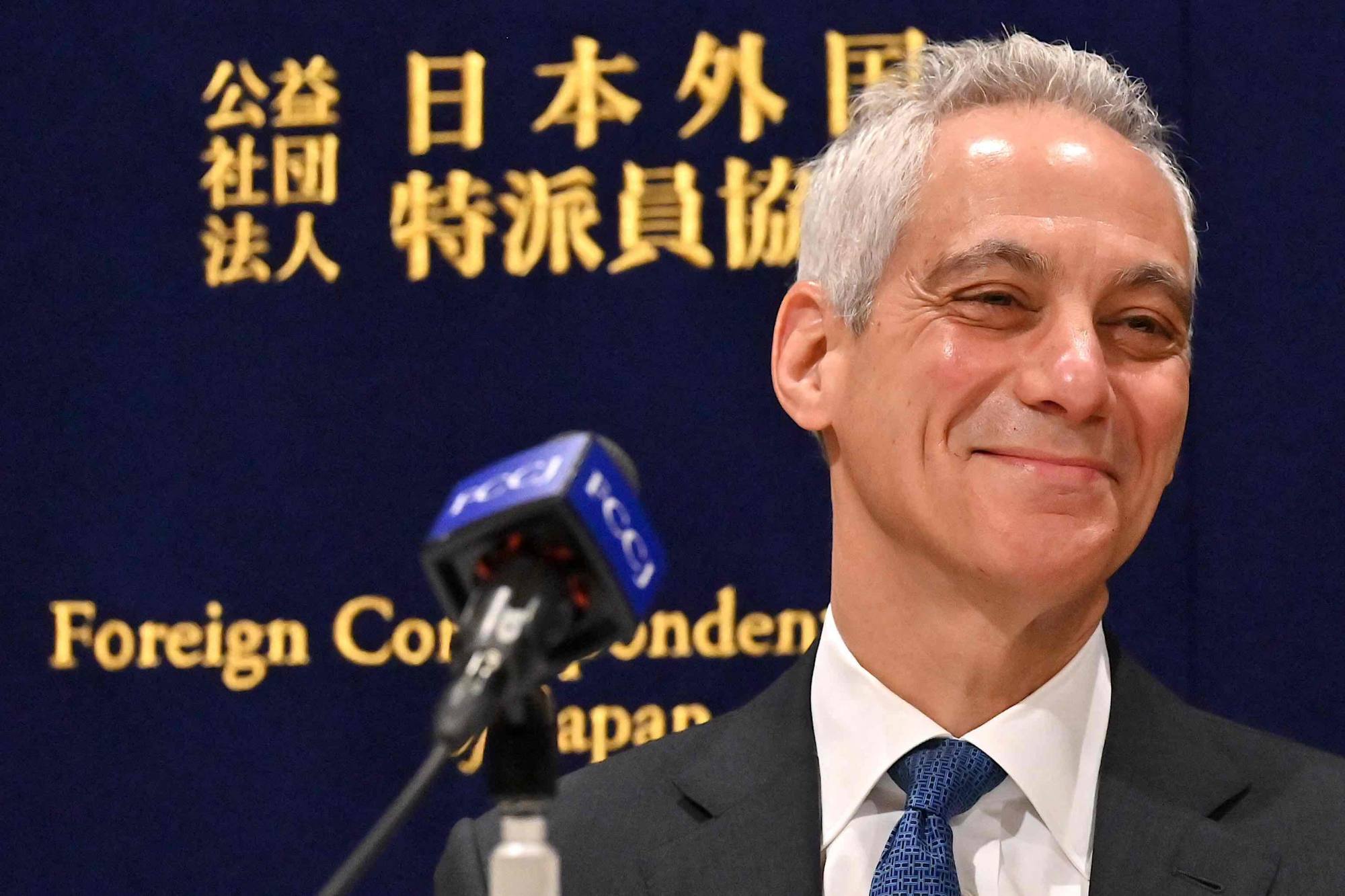US nears ‘win-win’ deal to use Japan shipyards to keep warships battle-ready amid rising tensions
[ad_1]
Japan and the United States are close to reaching an agreement to allow privately operated Japanese shipyards to carry out major repairs on warships of the US Seventh Fleet, a move analysts say will benefit Japan financially while also strengthening US military readiness in the region.
US Ambassador to Tokyo Rahm Emanuel announced on Friday that a working group had been set up by the two governments to fine-tune the details of the agreement, which analysts suggest would offer significant benefits to both nations, including a financial windfall for Japanese shipyards and the ability to keep more US assets close to areas where they may be needed in the event tensions in the region continue to worsen.
Emanuel revealed the initiative during a visit to the Yokosuka naval base southwest of Tokyo, which is the forward base of the US Seventh Fleet, comprised of as many as 70 warships and submarines and 150 aircraft, with the USS Ronald Reagan serving as the fleet’s aircraft carrier.
The ambassador noted that the first warship to enter a Japanese dock for repairs is likely to be the USS New Orleans, an amphibious transport dock vessel based at the US Navy’s facility in Sasebo in Nagasaki prefecture.
‘New Cold War’? South Korea, US boost military ties to counter China, the North
‘New Cold War’? South Korea, US boost military ties to counter China, the North
“It makes complete political and strategic sense for standard repairs and upgrades to be carried out at Japanese docks instead of sending these ships all the way across the Pacific for the work to be done,” said Go Ito, a professor of international relations at Tokyo’s Meiji University.
“Tokyo is keen to cooperate with the US on security issues as it wants to tighten the alliance as tensions continue to rise,” he said.
Japan’s security outlook had shifted in the last 12 months, Ito said, from an almost entirely defensive posture to a greater focus on an offensive capability brought on by China’s growing belligerence in the region, including over claims to the Diaoyu Islands, which are controlled by Japan where they are known as the Senkaku Islands; tensions over the atolls of the South China Sea; and the thorny problem of Taiwan.
“Tokyo apparently hopes that keeping more of the Seventh Fleet in the western Pacific will help to preserve stability in the region as a whole, and I understand that a similar agreement is also being discussed with South Korea,” he added.
On Monday, the South Korean Defence Ministry said in a statement that talks were ongoing with the US to expand the involvement of South Korea companies in the maintenance of US military equipment in the Indo-Pacific, including warships. The discussions also touched on logistics capabilities among allied nations in the Indo-Pacific and improving supply chain resilience.

Michael Cucek, a professor of international relations at the Tokyo campus of Temple University, believes Japanese dockyard operators will welcome the new business.
“There will be great interest from Japanese shipyards in a long-term commercial relationship, while the cheap yen also means it is good for the US as it can cut costs for these ships to be maintained by Japanese workers,” he said.
While there are likely to be complaints about “renewed Japanese militarism” from some of the nation’s immediate neighbours, Cucek dismissed that claim as “rote protests”.
“It is a win-win with no downsides for both governments and keeps Japanese shipyards happy as well,” he said.
As North Korea slams Japan troops’ shrine trip, Seoul and China stay silent
As North Korea slams Japan troops’ shrine trip, Seoul and China stay silent
Ito added that both Tokyo and Seoul appeared to be moving with surprising alacrity on their respective agreements with the US, likely indicating a concern that Donald Trump could be re-elected in November and return to a more confrontational approach to Washington’s traditional allies.
“Japan, I am sure, is trying to get this agreement – and possibly others – locked in before Trump potentially returns to the White House,” he said. “There is concern that a new administration will have a serious impact on the existing security policies, and all of America’s allies feel that danger.”
[ad_2]
Source link

